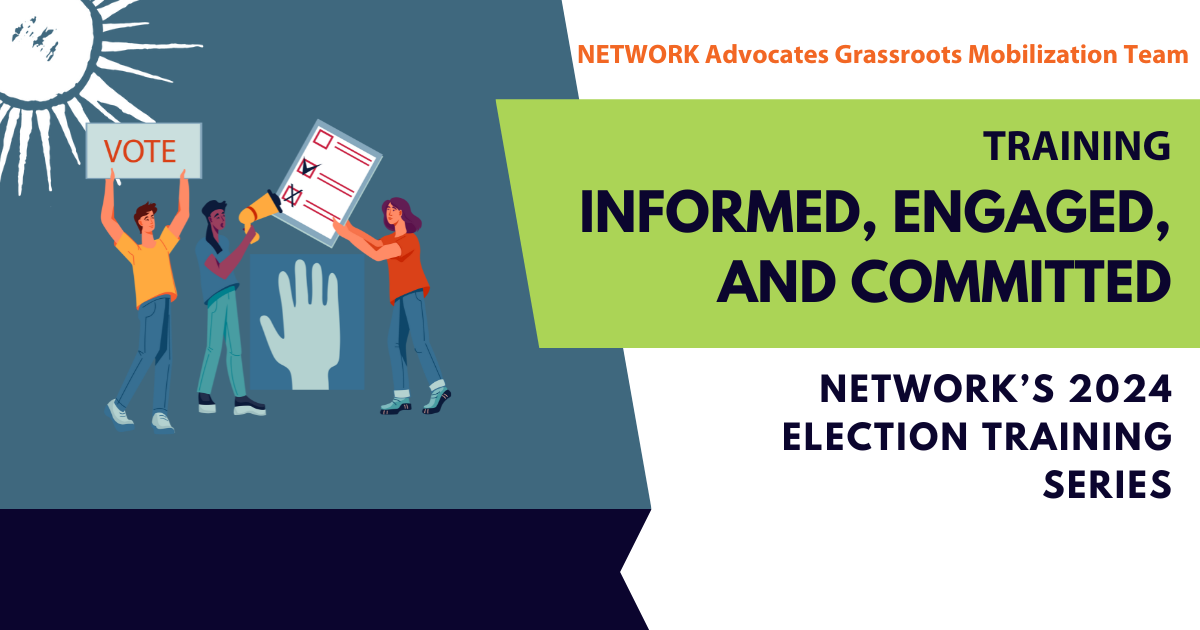
LGBTQIA+ Inclusion is a Christian Value
Virginia Schilder, MDiv, ThM and Minister Christian S. Watkins, MDiv
July 28, 2024
Honor Pride Month by making a plan to vote for a future where everyone thrives—no exceptions! https://networkadvocates.org/
No matter who we love, how we express ourselves, or what our family looks like, we all want and deserve to be safe, protected, and valued for who we are. This is one of our deepest human longings! Accordingly, the Catholic Church insists that every single person has immeasurable worth and dignity, and therefore must be respected, protected, and cherished as children of God.
However, some people in our politics assert the extremist position that only some people and families deserve rights and protection.
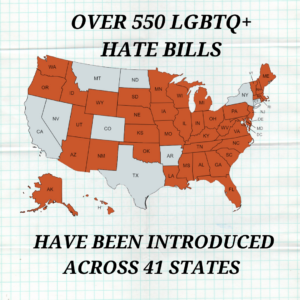 In the past year alone, state legislatures introduced a record number of bills targeting LGBTQIA+ people, parents, and children. These bills are hostile and divisive, and are linked to the rising rates of violence against queer and trans people, including youth. These policies make our communities unsafe and hostile for everyone, not just for those targeted by the laws. They create a culture of condemnation, censorship, and forced conformity, rather than nurturing a culture of welcome, inclusivity, and compassion. They defensively close the door to connection, inclusive community, and understanding.
In the past year alone, state legislatures introduced a record number of bills targeting LGBTQIA+ people, parents, and children. These bills are hostile and divisive, and are linked to the rising rates of violence against queer and trans people, including youth. These policies make our communities unsafe and hostile for everyone, not just for those targeted by the laws. They create a culture of condemnation, censorship, and forced conformity, rather than nurturing a culture of welcome, inclusivity, and compassion. They defensively close the door to connection, inclusive community, and understanding.
Our freedom to live in safety is threatened by political and religious leaders who paint us or our fellow community members—our siblings, friends, parents, children, neighbors, and coworkers — as “threats.” All too often, these political actors try to pit us against each other, hoping that we become too preoccupied with fear and hysteria to notice when they try to line their own pockets and force cuts to our health care, housing, and food assistance programs — as some right-wing members of Congress tried to do in 2023.
But we know better than to fall for scapegoating. As Christians, we refuse to make God smaller! We know each other, and we know our actual Christian values: to love, protect, and be in solidarity with our neighbors. We know that God’s creation is diverse and beautiful, and that every single person is fearfully and wonderfully made in the image and likeness of God – absolutely no exceptions!
Today, public opinion in the U.S. overwhelmingly supports same-sex marriage. Moreover, new research from PRRI shows that Americans perceive discrimination against transgender individuals as being the highest of any group right now. We see the hatred that’s going on, and it does not reflect our values, nor our dreams for ourselves and our children.
it does not reflect our values, nor our dreams for ourselves and our children.
Our communities have protected one another and our families before, by rejecting hatred and division and supporting policies that promote true safety and freedom for all of us. For example, last year, the Biden administration launched a new LGBTQI+ Community Safety Partnership to provide safety trainings, support health care workers, promote the reporting of hate crimes, and build partnerships to address hate-fueled violence. These initiatives, and the spirit of solidarity they foster, make our communities better for everyone.
We can continue to take action to reflect our true values: inclusivity, freedom, and love for our neighbors. Together, we have power to make sure no one in our communities is excluded, demonized, and stripped of their freedoms. We have the power to insist on our equal worth and equal rights to protection, including for our children. This election year and beyond, we can Vote Our Future to ensure that every single one of us has the freedom to live in safety, and to be who God made us to be.
Honor Pride Month by making a plan to vote for a future where everyone thrives—no exceptions! https://networkadvocates.org/







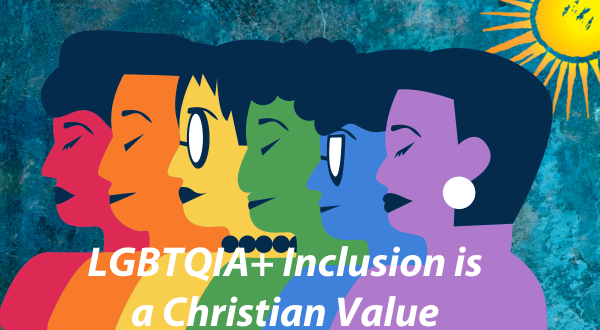

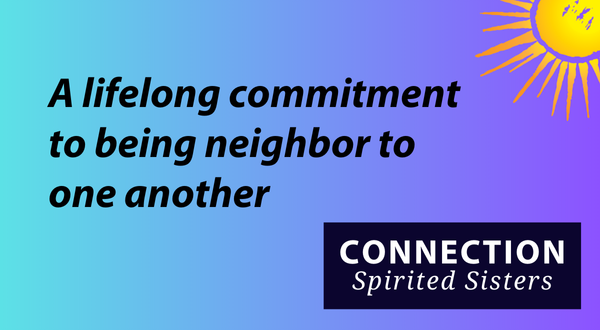
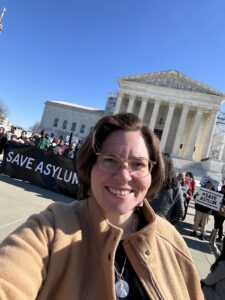
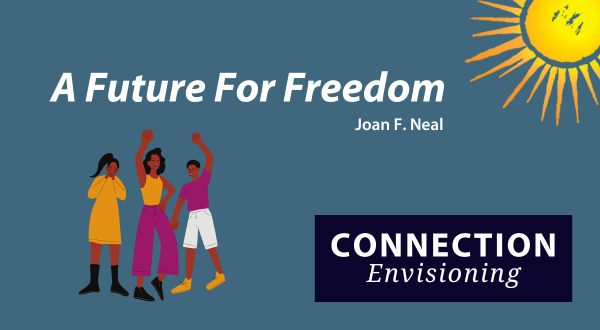
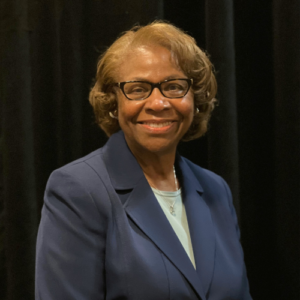
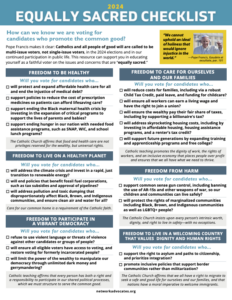
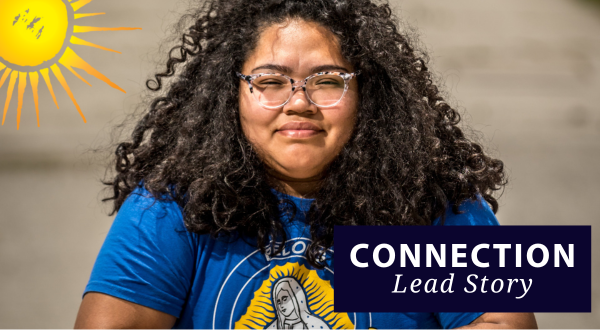


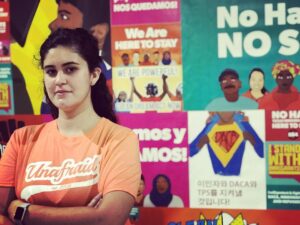
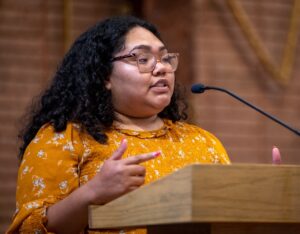
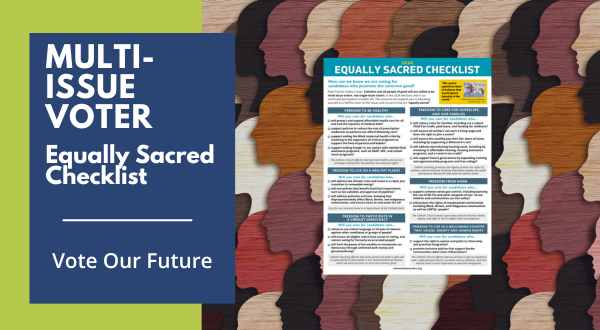
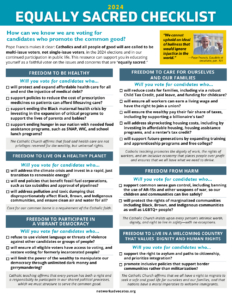
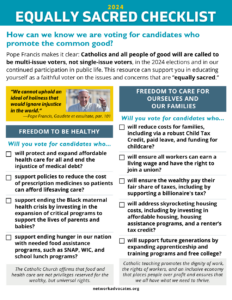
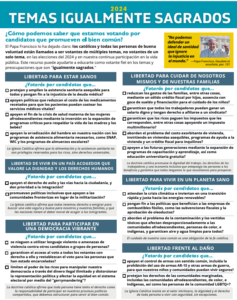
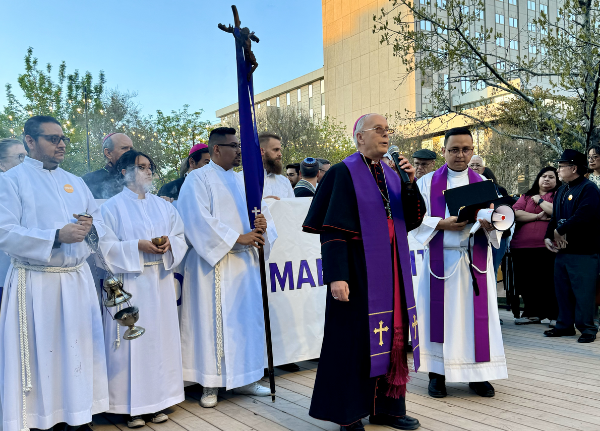

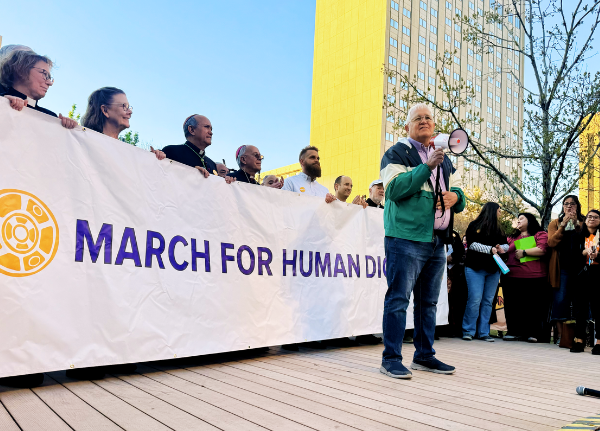
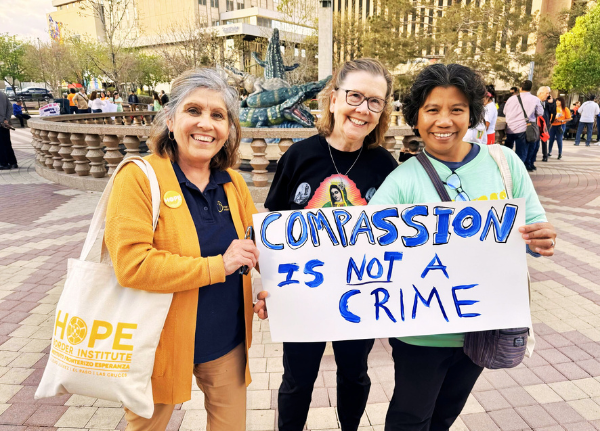
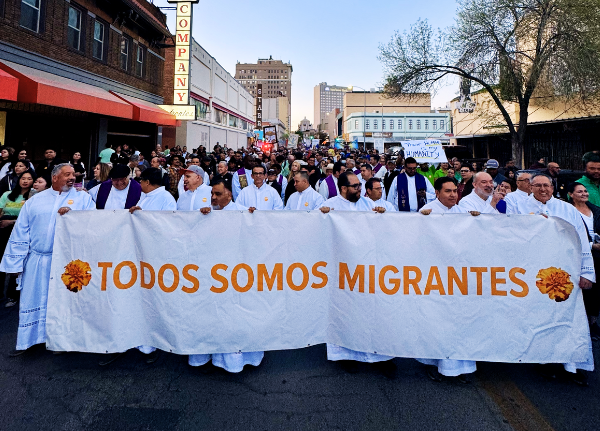
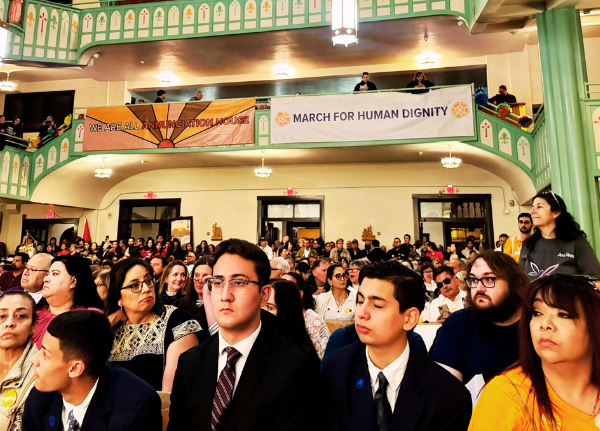
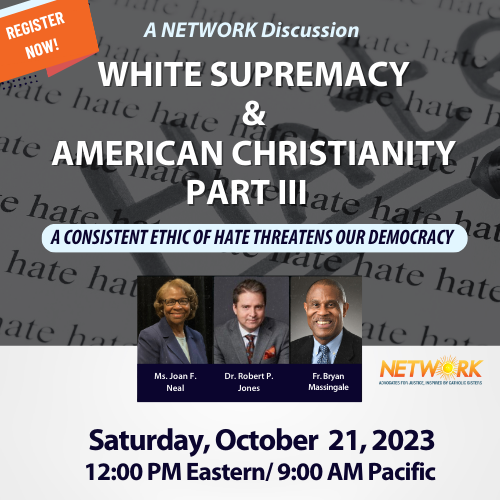
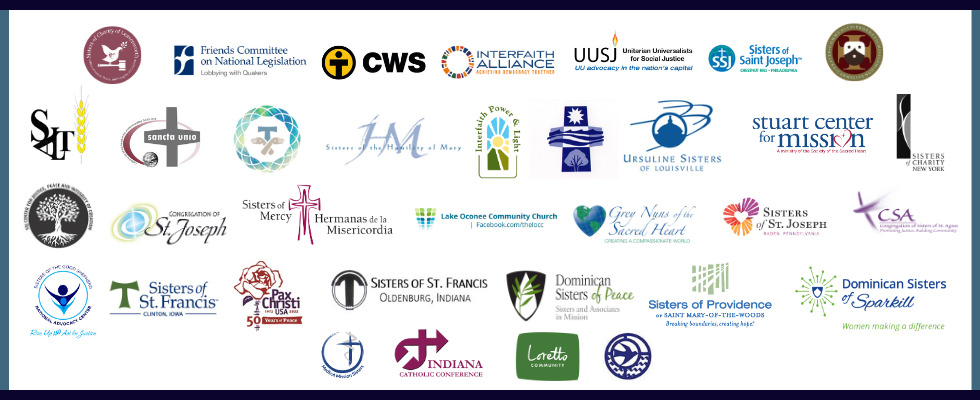

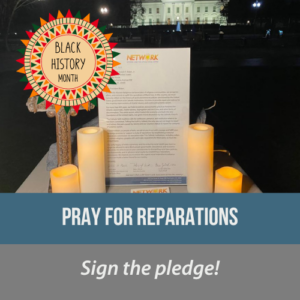
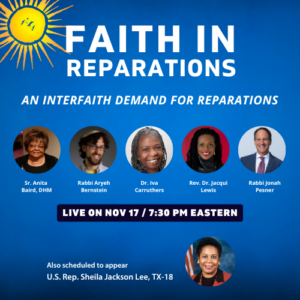
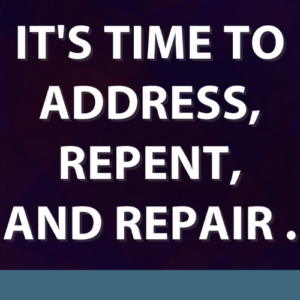
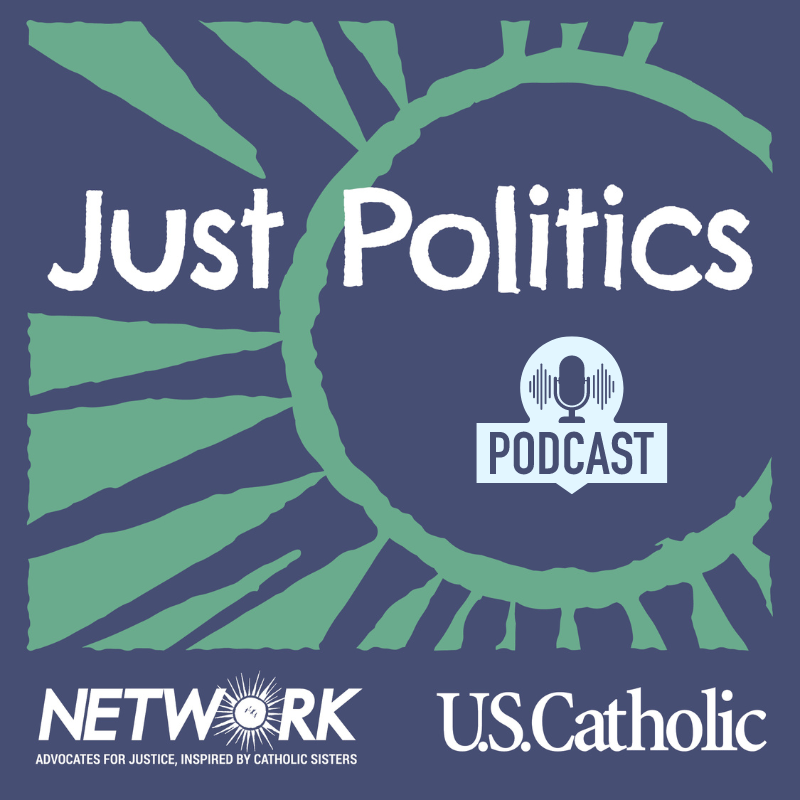

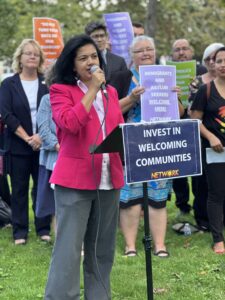
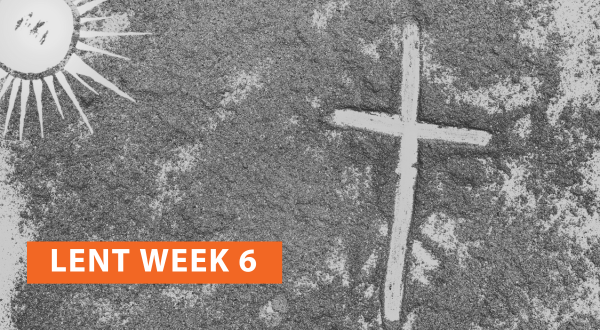
 But Easter is also a collective reality—something we experience in community—and an invitation to something new, for all of us. In Eastern Christianity, we have the image of the Resurrection depicted as not only Jesus springing from his tomb alone, but of leading others to God communally. We are raised up together. As this week’s prayer from NETWORK Lobby Board Chair Sr. Catherine Ferguson, SNJM expresses:
But Easter is also a collective reality—something we experience in community—and an invitation to something new, for all of us. In Eastern Christianity, we have the image of the Resurrection depicted as not only Jesus springing from his tomb alone, but of leading others to God communally. We are raised up together. As this week’s prayer from NETWORK Lobby Board Chair Sr. Catherine Ferguson, SNJM expresses: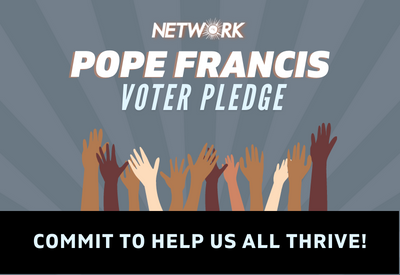
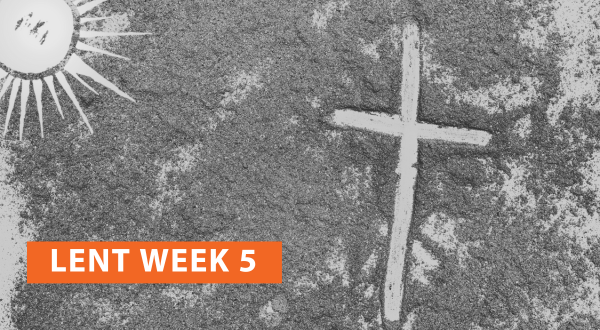
 As we look ahead to the stark choice we face in the 2024 election, it becomes clear that what needs to die in us is apathy, despair, and all the hatred, anger, and us-versus-them mindsets that keep us from solidarity with our neighbor. All of these things–the division and disengagement–help the wealthy and powerful amass power and resources, while hard-working people in our communities are deprived of the resources needed to live the dignified life we all deserve.
As we look ahead to the stark choice we face in the 2024 election, it becomes clear that what needs to die in us is apathy, despair, and all the hatred, anger, and us-versus-them mindsets that keep us from solidarity with our neighbor. All of these things–the division and disengagement–help the wealthy and powerful amass power and resources, while hard-working people in our communities are deprived of the resources needed to live the dignified life we all deserve.